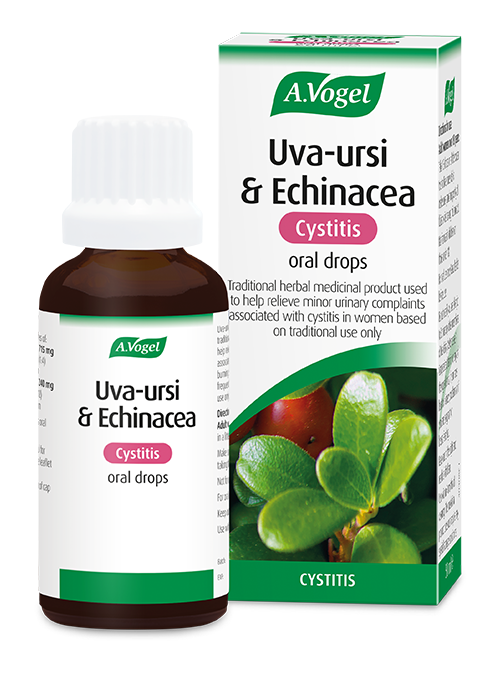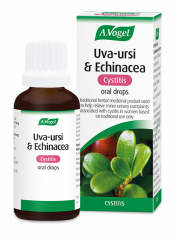Could the pill be to blame for frequent UTIs?
Whilst there is some debate in the medical community, research does exist showing a connection between hormonal contraceptive use and recurrent UTIs. Whilst of course there are other likely causes, the pill influences hormones which has been shown to be one possible contributing factor in the onset of urinary tract infections.
Common causes of cystitis
When it comes to urinary tract infections (UTIs), the main cause is bad bacteria getting into the wrong places. As bacteria infects your urinary tract, it can easily lead into an infection of the bladder, which we call cystitis. But how does this happen?
In most cases this happens as a result of the simple transfer of bacteria. This is more common in girls (we have anatomy to thank for that) and it may crop up more often after sex or as a result of different clothing choices or hygiene practices.
However, what else could be having an influence? Is it possible that everyday medications could be having an effect too?
How could the pill be having an influence?
When it comes to the pill and UTIs or cystitis, firstly, it’s important to consider what the pill is actually doing and what effects it can have in the body.
1. The pill creates a hormone imbalance
The pill, much like many other forms of hormonal contraceptives including the implant, the injection and the Mirena coil act as contraceptives by providing a specific dose of synthetic sex hormones.
In this way, they help to prevent pregnancy or may help with the symptoms of PMS, in some cases. However, if our natural balance of hormones can contribute to a wide array of PMS symptoms, isn’t it possible that the synthetic hormones provided by the pill or other forms of contraceptives could be having an influence on our symptoms too?
Although it isn’t common knowledge and we're still working to understand exactly why, early research shows that being on the pill can put us at greater risk of infections and changes in the structure of the urinary tract. (1)
One theory for this is that significant drops in oestrogen could be having a part to play. Firstly, when it comes to oestrogenic forms of the pill, i.e. the combined pill, the drop-off in oestrogen that we experience at the end of the month could be making our tissues drier and more prone to infections. However, progesterone-heavy methods including the mini pill, implant, injection or the Mirena coil could also potentially drive oestrogen levels down and create an imbalance there too.
Almost like a mini menopause, low oestrogen can affect the structure of the delicate mucous membranes that line many parts of our body, including our urinary tract, making infections more likely to set in. Worryingly, it also looks likely that the longer someone has been on hormonal contraceptives, the more likely they are to suffer from recurrent infections. (1)
2. The pill can drain nutrient stores
Another possible influence is how being on hormonal contraceptives can have an effect on our nutrient stores. These meds are thought to contribute to draining our stores of vital minerals including vitamin C, the B vitamins and zinc, to name a few, all of which have important roles in supporting our immune system, and therefore our ability to keep on top of infections.
3. The pill may mean more sex
Finally, women on hormonal contraceptives are perhaps more likely to be sexually active than those who don’t have a need for it. It’s not that sex directly causes UTIs or is a bad thing! But we may just have to be more conscious in taking extra steps to protect ourselves from the transfer of bacteria.
One top tip is to ensure you go to the loo straight after sex to help keep any lingering bacteria flushing through.

Then, as well as the hormonal methods, how do barrier methods of contraception come into all of this? Is there still a risk there too? Condoms, depending on how they’re used could make the transfer of bacteria more likely and other options such as diaphragms or spermicides risk changing the internal environment of the vagina.
The pH of the vagina is well equipped for fending off bacteria, so if this is deliberately changed it could make infections more likely, so this is also something to be aware of.
What can be done to help?
If you suffer from recurrent UTIs and suspect being on the pill, or another type of hormonal contraceptive, could be contributing, some advice from me for tackling this is as follows:
1. Listen to your symptoms
It sounds simple enough, but do many of us listen and I mean really listen, to our symptoms? Much like issues such as thrush, if your symptoms of cystitis crop up at the same time each month, it’s more likely that hormones are having something to do with it.
So, perhaps it’s time we started to prioritise understanding more of what’s going on with our bodies, especially if you’re on any medications such as hormonal contraceptives.
However, this theory applies to specific symptoms too. Once you’ve started to identify likely underlying causes, you can hopefully begin to have a much better go at preventing those recurrent episodes which get so many of us down.
Even if the symptoms only crop up on the odd time, by understanding the causes more carefully, you’ll hopefully be in a much better position to decide if you can treat the symptoms from home, or if a trip to your doctor or pharmacist is necessary.
2. Chat to your doctor
Hand in hand with paying more attention to your symptoms, when it comes to cystitis, it may be helpful to chat things over with your doctor.
Firstly, discussing your pill may be the best place to start. As above, research suggests that certain pills could be contributing to some of the symptoms of cystitis, so it’s best to consider your current situation and perhaps having a chat with your doctor will open up the possibility of some different options for you.
If one type of pill isn’t agreeing with you, it might be time to try switching to another or exploring methods of contraception you hadn’t yet considered.
Then, when it comes to treating the infection itself, although antibiotics come top of mind for many of us, there is a time and place for antibiotics when it comes to UTIs (read my blog on this topic for more detail).
The threat of antibiotic resistance is fast upon us, not to mention the adverse effects antibiotics can have on your balance of beneficial bacteria, so this is all something to be aware of and perhaps think twice about going forward.
My advice is, if antibiotics are considered necessary, take a course of good quality probiotics alongside them.
3. Take other steps to manage your symptoms
Whether it’s with or without some intervention from your doctor first (in terms of discussing the pill or the need for antibiotics), sometimes when it comes to managing the symptoms of UTIs, it may be appropriate to take things into your own hands.
Factors such as diet can have a big influence when it comes to UTIs and cystitis, and surprisingly, there are also a number of other things you can do at home to help keep things under control – something as simple as managing your liquid intake can have a huge difference (more water, more good quality cranberry juice and less caffeine, for example), can be a simple step in the right direction.
However, there are also herbs that can lend a helping hand. Uva-ursi & Echinacea is a licensed herbal remedy for the symptomatic relief of UTIs and cystitis. You can take this up to 5 times daily at the height of an infection to help get troublesome symptoms under control, and it has no contraindications with hormonal contraceptives.
Originally published September 2018, updated August 2022










